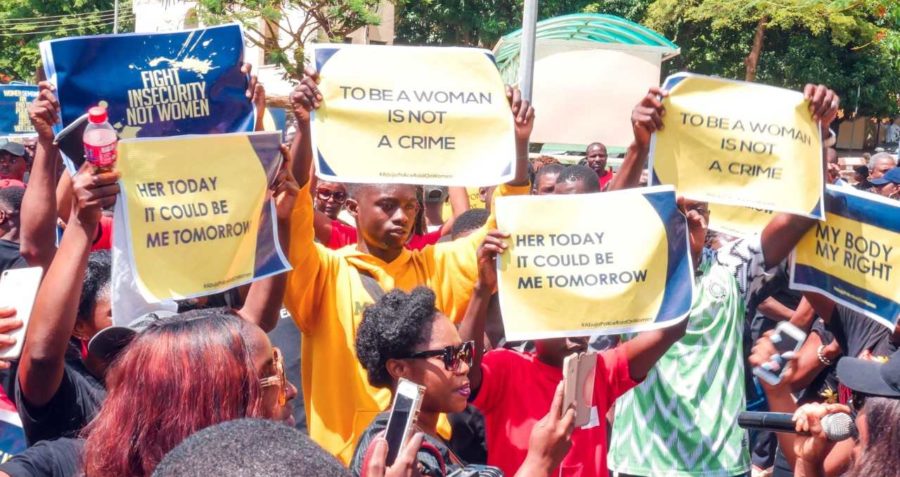Being a woman: a crime in Nigeria?

Women in Nigeria have long suffered domestic violence, but they now face gender-based violence in the country’s streets.
Over two weeks in April, more than 100 women in Abuja were forcefully and illegally arrested by a joint task force set up by the Federal Capital Territory Administration. The majority of the women were picked up in the capital’s streets and restaurants, others while enjoying drinks on a Friday night with friends or while at clubs and hangout spots. They were all accused of being sex workers.
The women were brutally handled, severely molested, and thrown into prison cells. After 48 hours, during which they were denied access to legal representation, they appeared before a mobile court facing charges of loitering and nuisance.
While sex work is not illegal in Nigeria, police have been known to detain people on suspicion of selling sex. Since there are no laws supporting such charges, it feels to many that being a woman has become a crime.
When alerted to one of the raids, Anthony Nkwocha, the Nigeria focal point of the Partnership to Inspire, Transform and Connect the HIV response (PITCH), and a lawyer representing the Nigerian Sex Workers’ Association (NSWA, also part of PITCH) rushed to the mobile court to intervene. About 30 women had already been coerced into to pleading guilty and had been sentenced to three months in prison, with the option to avoid jail by paying a fine of approximately $10.
The PITCH partners paid the fines to secure the release of the women who had pleaded guilty and provided legal support to one woman who pleaded not guilty.
PITCH Nigeria, together with Education as a Vaccine (EVA), NSWA, International Federation of Women Lawyers (FIDA) and the Dorothy Njemanze Foundation, organised a press briefing on 2 May to address the frequent arrests of women in Abuja.
The briefing challenged the widespread views concerning the subjugation and harassment of women and urged the Government of Nigeria to stop the violations of women’s human rights. Anthony Nkwocha read a statement that had been signed by over 70 human rights organisations and activists.
Some of the women who had been arrested in the raids detailed their ordeal in the hands of the police.
EVA and NSWA, in coalition with other civil society and human rights organisations, organised a march on the streets of Abuja to protest against the arrests. Nearly half a million people marched to the office of the Federal Capital Territory Administration and delivered a letter to the Minister of the Federal Capital Territory demanding a stop to the raids, compensation to the victims, and punishment for the perpetrators of the violence against those arrested.
After the protest, some of the participants attended a meeting at the National Human Rights Commission (NHRC) that included representatives of the offices of the vice president, the chief justice of Nigeria, the attorney-general of the federation, and representatives of the ministry of women’s affairs and social development. The PITCH representative joined civil society partners in demanding an immediate stop to the raids on women and called for a public inquiry into the human rights violations.
The weekend following the protest there were no raids, and the NHRC has summoned the agency responsible for the raids to explain its actions. Local police have also responded to the protests and created new platforms to engage with civil society. Court proceedings have begun to seek a permanent end to such arrests and abuses and to seek redress for the victims.
Thanks to the PITCH partners’ intervention, the case against the woman who refused to plead guilty was dropped.
This small but important victory offers hope that a coordinated approach could yield genuine change for women in Nigeria.
Tags
Gender equalityHuman rightsNigeriaPITCHSex work


